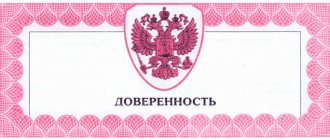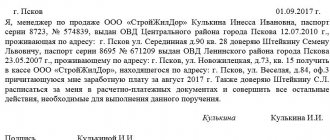Elderly people who receive pensions are considered the most vulnerable segments of the population. Unforeseen situations that arise in their lives may serve as an obstacle to receiving pension contributions.
The procedure for receiving a pension, which at first glance seems quite simple, may be impossible for a person who is in the hospital. This is the reason for issuing a power of attorney for another citizen who could receive money from a banking or postal institution.
What to do with your pension during quarantine
During the coronavirus quarantine, it is dangerous for older people to leave home to collect their pension. But they have a couple of other options for minimal contact with other people:
- Bank card . If before the start of quarantine, monthly payments were issued on a card, then you can use non-cash payments. Including paying utilities and making other regular payments. Most banks provide free access to online banking. If you don’t have a card, some banks offer a remote way to issue them. This can be clarified by calling the hotline. In addition, you will need to submit an application to the Pension Fund to transfer your pension to the card. Detailed instructions on transferring a pension to a card are in the Brobank review.
- Home delivery . To do this, you need to write an application so that the pension is delivered to the specified address. In most regions, pensioners are still receiving money with precautions in place.
- By proxy . To do this, you will need to transfer your legal rights to a younger relative or another adult citizen. He will be able to receive money at the post office or at the bank instead of a pensioner.
According to the legislation of the Russian Federation, a trusted person can receive monthly payments instead of a pensioner if the procedure for transfer of powers is followed. This option is used when a pensioner is in poor health, lives abroad or is in another region of the country. He cannot receive the money himself under these circumstances, and a power of attorney resolves this issue.
An authorized representative can represent the interests of a pensioner in the Pension Fund branch, as well as:
- Submit an application for a pension to the Pension Fund on behalf of the pensioner principal.
- Prepare documents for pension payments, including a pension certificate.
- Register a pension account with a banking institution.
A power of attorney to receive a pension is certified by a notary or other authorized person. Banks offer their own version of an internal power of attorney, which is suitable for issuing money from an account or by card.
Cards for crediting pensions →
Where can I apply?
There is a list of organizations that have the right to issue the corresponding document:
- notary offices;
- institutions where the pensioner continues to officially work;
- management of the medical institution where the elderly person is being treated;
- social protection authority if the citizen stays, for example, in a home for the elderly;
- the head of the local administration or other authorized person, if the locality in which the pensioner lives does not have a notary.
The management company or housing office employees, bank and post office employees do not have the authority to issue a power of attorney.
Types of power of attorney
There are two types of document transferring the powers of a pensioner to a trustee:
- main, primary or general - to the person who receives the right to receive a pension;
- sub-power of attorney - a power of attorney issued by an attorney to a third party.
A transfer of power can be issued only if there is an urgent need and rights to perform such actions. In this case, the main document must indicate the possibility of transferring powers to a third party. Otherwise, the trustee will not be able to transfer rights to anyone.
The validity period of an additional power of attorney cannot be longer than the main one. If a general power of attorney was issued before May 31, 2021, then reassignment is possible only before this date.
How much does registration cost?
As a rule, notarial acts are paid. The cost of these services is set in accordance with the tariffs approved by the notary chambers. However, certifying a power of attorney to receive a pension is free. This applies to cases where a notary is approached with a document that has already been drawn up in advance.
At the same time, employees of notary offices can charge a fee for drawing up a document. The tariff for the provision of legal and technical services is set independently, but cannot exceed the limits established by the notary chamber. It should be noted that in different regions of the country the cost of these services can vary significantly. On average, you will have to pay about 1,500 rubles for drawing up a power of attorney. In the metropolitan area, fees may be higher.
Important! There is no charge from a person for issuing a bank power of attorney to receive payments of any money.
How to fill out a document
A power of attorney can be drawn up without strictly following the form. The main thing is that it contains information about the method and place of receiving a pension at the post office, at home or at a bank. In this case, be sure to enter:
- The date when the document was drawn up.
- Place to fill out the power of attorney.
- Personal, contact and passport details of the pensioner and the trustee.
- List of actions allowed to the authorized person.
- Type of pension payments: upon reaching age or disability.
- The legal name of the company that will issue money to the trustee.
- Information about the person who certifies the document.
The pensioner can set the period for transferring rights: 1 year, 3 or 5 years. But despite this, he will have to apply annually to continue issuing money through a proxy. Pension payments are terminated if the pensioner does not renew the power of attorney and does not undergo personal identification.
For how long is it issued?
The time frame for the validity of a power of attorney to receive pension accruals depends on the purpose for which it is created. For example, if you need to entrust the receipt of a pension to another person during your stay in a medical institution, you should first inquire about the duration of treatment.
The power of attorney can have any validity period. If a specific date is not indicated in it, then it automatically equals one year.
You should be careful when specifying the date of issue of the power of attorney - this is an important point in the document. In the absence of such a condition, the power of attorney will be considered void.
Who can confirm the document
First of all, the duty of certification is assigned to notaries. But besides them, a power of attorney for a pension can be certified by:
- the head of the state administration or village council where the pensioner lives;
- another official from local government bodies who has been given such powers;
- the organization in which the pensioner is employed or undergoing training;
- the head of a hospital or clinic where a citizen, a pension recipient, is undergoing inpatient treatment;
- consul, if the pensioner lives in another country;
- the head of social security at the place of residence of the pensioner, or an employee of this organization who is vested with such powers.
To authenticate the document, the pensioner comes in person with a passport. And the authorized person may not be present; only a photocopy of his citizenship will be needed. There is no charge for certifying a power of attorney. But if the text of the document is drawn up by a notary, then most likely you will need to pay a state fee and notary services.
Forms of power of attorney equivalent to notarial
This type includes documents that were certified by the responsible person:
- at the place of work or training of the principal;
- head of a military unit, correctional institution;
- local authorities (if there is no notary in the locality);
- the chief physician of the medical institution where the principal is undergoing treatment.
Such documents can be compiled on a computer or handwritten. The main thing here is to correctly and clearly indicate all the necessary details. The validity period is usually set by the certifying person.
What documents are needed for a power of attorney?
To issue a power of attorney to issue a pension, you need:
- Pensioner's passport.
- Data from the passport or a photocopy of the citizenship of the person for whom the power of attorney will be issued.
- When transferring pension payments to Sberbank, you need a savings book.
- If the pension is credited to an account in any other bank, you will need a power of attorney from the bank to issue funds from the card or account.
This is a list of the main documents that will be required during preparation. In unusual situations, the certifying official may request additional documents.
Nuances
Often, issuing a power of attorney to receive pension payments is necessary due to non-standard and, sometimes, force majeure situations. Let's look at the most common of them.
If the pensioner is in hospital
Due to the presence of serious illnesses, pensioners may undergo treatment in hospitals for a long time. In this case, a power of attorney granting the right to receive payments to a third party can be certified by the chief physician of the medical institution.
The text of the document must necessarily indicate information about the period of treatment and the corresponding medical reasons.
To pay for a bedridden patient
In cases where the principal cannot independently arrive at the notary’s office, it is possible for a specialist to visit his location. This is considered a separate service, which is paid at the appropriate rate. On average, the departure fee is about 1 thousand rubles, but can vary significantly depending on the region.
For payments for the incapacitated
A person who is declared incompetent a priori cannot receive funds in his hands, and therefore a guardian or trustee receives a pension for him. If the incapacitated person is in a specialized social service institution, then his pension goes to the current account of the organization, the administration of which has the obligation to dispose of it in the interests of the pensioner.
An authorized person's application for a pension by mail
If a pensioner is given money at the post office, payments under the power of attorney last the entire validity period of the document. The main thing is that the pensioner confirms once a year his desire to receive funds through this proxy, provided that the document is issued for 2 years or more. If the power of attorney is one-time or for several months, such a document will have to be replaced with a longer-term one.
To receive payment, the authorized person gives the post office employee a power of attorney form and personal passport. There is no need to warn that it is not the pensioner himself who will come for the money, but his legal representative. After the intermediary receives the first payment, the power of attorney is transferred for storage to the post office to which the pensioner is attached. If the document is also needed for other organizations, then not the original, but a photocopy of the document is left at the post office.
Application of a trustee to a bank for a pension
If a pensioner has a bank account and receives a pension on a card, it is more convenient to issue a power of attorney at a bank branch. It is issued without a notary or other authorized persons. The bank does not require additional certification of powers of attorney issued for its accounts and cards.
This option is possible when the authorized person receives a separate card. This additional card will have its own PIN. The pensioner himself can receive plastic intended for a trusted person. But you can do it according to another scheme: if both the pensioner and the authorized person have cards, then through the pensioner’s personal account you can transfer the credited pension to another person. In this case, no one will need any power of attorney at all, and especially nothing will need to be renewed. Even if the pensioner's card expires, you can transfer money directly from your bank account.
If a trustee receives a pension for a pensioner for more than a year, then bank employees are required to notify the Pension Fund branch of this fact. To update information in the Pension Fund, you must write a second application and renew the power of attorney if it expires. The Pension Fund constantly identifies pensioners and checks information about them if they receive a pension by proxy on a bank card for one year or longer. To verify citizens and renew a power of attorney, the personal presence of the pensioner and his authorized representative is required.
Pros and cons of the transition
Benefits of a pension card:
- the queue at the ATM is much shorter than at the cash register;
- money can be used without cashing it out;
- the payment is available for use as soon as the Pension Fund transfers it;
- the interest accrued on the balance is higher than on a demand deposit;
- When paying for purchases without cash, bonuses are credited to a separate account. Thank you;
- ease of transfers between relatives and friends;
- the ability to manage your account from a computer at home or from your own phone.
The disadvantages relate mainly to technical issues:
- plastic can be scratched and broken (the chances of tearing a bill are much greater);
- errors during use can make the card temporarily impossible to operate; sometimes a reissue is required;
- cards of the MIR payment system have great restrictions when paying abroad; in most countries they do not work;
- Many online stores do not accept MIR, especially those whose work is closely related to foreign companies.
Expired power of attorney
According to the law, a pensioner who has not received payments on his own for more than a year must confirm registration. To do this you need:
- Personally visit the local branch of the Pension Fund of the Russian Federation and confirm registration. You can present a passport with registration, residence permit or certificate of registration at the place of residence.
- Before 12 months have passed from the first payment of the pension to a trusted person, you can come in person to collect the insurance pension. For example, receive the 11th or 10th payment yourself, and then again send your legal representative for the money. In this case, the personal identification function is performed by the employee who issues the pension.
If a pensioner for health reasons cannot come and sign the document on his own, a close relative can do this for him. He will need an identity card and a document showing the degree of relationship. Also, when receiving a pension at the post office, a trusted person can notify employees that the pensioner cannot come in person. In this case, the next time the pension is paid, Russian Post employees will come to the pensioner’s home, and there they will record the fact of his residence. At the same time, information is added to the documentation about why the pensioner cannot come to the department and sign the document independently.
All these precautions arose because there were often cases when trustees received pension payments for a pensioner who had already died. Therefore, they now require annual confirmation of the pensioner’s residence.
Who writes?
The primary task when drafting a document is to determine who may be the drafter. There are few options. For example, you can contact a trusted person, guardians, adoptive parent or parent. A trustee can also be the drafter. As you can see, in addition to the pensioner, choosing a person to draw up the document should not be difficult.
To assist in the procedure, you can invite any person from the above categories. However, there are a number of exceptions that will be useful to familiarize yourself with :
- If a pensioner does not have the physical ability to come to a notary to confirm his consent, then there is a way out. You can call a notary to a place convenient for the pensioner, for example, home or hospital. This will cost several times more, but it will save you nerves and time.
- If the pensioner is serving a prison sentence, then the Criminal Code of the Russian Federation comes into force. For such people, pension payments are credited to a special account of the correctional institution where the person is located. However, funds will be debited from such an account to pay off any debt, or to pay for detention in a prison cell.
The pensioner has the right to receive some of the funds to buy food, but he will receive the rest of the amount only after his release. This is the case when no one has the right to receive a pension for a person - even a power of attorney cannot be drawn up in this situation.
Such a document must state that the pensioner is currently undergoing treatment in a medical institution and cannot personally receive pension payments. Also indicate that the pensioner is entrusting the receipt to his attorney.
We figured out whether it is possible to draw up such a document, and then we’ll talk about how to do it.
Revocation of power of attorney
Sometimes situations arise when a pensioner loses confidence in his representative, or the representative abuses his powers. Or it may turn out that the trusted person left for another city, stopped communicating, or any other life circumstances arose. The pensioner should know that he always has the right and opportunity to revoke the power of attorney and appoint any other person to this role. To do this you will need:
- Send registered letters to the current authorized representative, as well as to the post office or bank. The number of notifications depends on where the pensioner received payments.
- If the power of attorney was drawn up through a notary, then your desire to revoke the right to represent interests should be sent to him. In such a situation, the notary will send out the letters.
- Wait for the return of the original issued power of attorney. The person entitled to represent the interests of the pensioner is obliged to return the document. The form will be received by a pensioner or a notary, depending on who sent the letter.
- When revoking a notarized power of attorney, the notary certifying it posts information about the revocation on the website of the Federal Notary Chamber at reestr-dover.ru.
- If you do not promptly notify the bank or post office about the revocation of the power of attorney, all responsibility for issuing money falls on the pensioner principal.
- If there is no information about the current location of the authorized person, the request should be sent to the last known address.
- In a situation where an extended power of attorney has been issued, other structures should be notified not only for receiving a pension. If you have been given the right to sell a car, notify the traffic police in writing; if you have been given the right to deal with real estate, then also Rosreestr.
Even if the authorized person refuses to return the power of attorney form, you can contact law enforcement agencies. They regard the act as fraud. However, there is no need to worry about using a power of attorney that has expired.
Remember: the power of attorney loses legal force upon the death of the pensioner. Therefore, the relatives of the deceased may not worry that an attacker will use such a document. In this case, he will bear full financial and criminal liability for the money obtained illegally.
about the author
Klavdiya Treskova - higher education with qualification “Economist”, with specializations “Economics and Management” and “Computer Technologies” at PSU. She worked in a bank in positions from operator to acting. Head of the Department for servicing private and corporate clients. Every year she successfully passed certifications, education and training in banking services. Total work experience in the bank is more than 15 years. [email protected]
Is this article useful? Not really
Help us find out how much this article helped you. If something is missing or the information is not accurate, please report it below in the comments or write to us by email
Notary fees
Filling out an application at a bank or having a power of attorney certified by an official is free.
Notary services are paid in accordance with the established tariff. State notaries have a lower fee, while private notaries have a higher fee.
In addition to the notary fee, you will also need to pay a state fee in the amount of 200 rubles.
Payment for notary services can vary from 1000 to 2000 rubles. In cases where the power of attorney is executed at home, the amount may double. In addition, there may be certain regional payment differences.
Comments: 12
Your comment (question) If you have questions about this article, you can tell us. Our team consists of only experienced experts and specialists with specialized education. We will try to help you in this topic:
Author of the article: Klavdiya Treskova
Consultant, author Popovich Anna
Financial author Olga Pikhotskaya
- Vyacheslav
10/06/2021 at 16:42 if a person is in a coma, how to issue a power of attorney.
Reply ↓ Anna Popovich
06.10.2021 at 17:09Dear Vyacheslav, contact the court with an application to declare the person incompetent.
Reply ↓
08/26/2021 at 01:07
Good evening! My mother is not literate and does not know how to write, but you need a power of attorney to receive a pension for her. The notary asks to bring her and that she write the Last Name First Name Patronymic on the power of attorney. But as? Can my daughter sign for it?
Reply ↓
- Anna Popovich
08/26/2021 at 17:02
Dear author, yes, if a citizen, due to a physical disability, illness or illiteracy, cannot sign with his own hand, then, at his request, another citizen can sign the transaction. The signature of the latter must be certified by a notary or other official who has the right to perform such a notarial act, indicating the reasons why the person making the transaction could not sign it with his own hand.
Reply ↓
08/19/2021 at 13:50
Hello, please tell me, I filled out a power of attorney through the website notary.kdmid.ru, how can I print this document? Is it impossible to print from the site or did I do it wrong?
Reply ↓
- Anna Popovich
08/20/2021 at 03:14
Dear Muhammad, please contact the hotline of the Consular Department of the Ministry of Foreign Affairs of the Russian Federation for advice by phone - Monday - Thursday from 10.00 to 12.00 and from 13.00 to 17.00; - Friday - from 10.00 to 12.00 and from 13.00 to 16.00.
Reply ↓
08/17/2021 at 18:51
Please tell me whether it is possible to register the receipt of a pension using the details of a trusted person (using a general power of attorney), and if this is possible, then which authorities should I contact for registration and on the basis of what norms of the legislation of the Russian Federation can this be done? Can Sberbank, without the participation of the Pension Fund of Russia, transfer the receipt of a pension from the principal’s account to the account of the trustee?
Reply ↓
- Anna Popovich
08/18/2021 at 17:50
Dear Alik, with a power of attorney it is possible to: — issue a main debit card; — get a Momentum debit card; — get a new or reissued debit card; — issue an additional debit card; — top up a debit card or debit card account; — receive information, statements and certificates regarding your debit card account at any SberBank office; — receive cash from a debit card account without using it; — fill out an application for reissue of a debit card; — fill out an application to close a debit card account. It is not possible to register a pension using the details of a trusted person.
Reply ↓
06.16.2021 at 20:23
Hello, I am a social worker and my ward with a visual impairment of group 1 is in the hospital. I'm registering her for a boarding school. She received her pension through the postman. Now you need to transfer your pension to the card. The pension fund said that I needed a power of attorney certified by the head physician so that I could formalize all this. But no one will tell you how to fill it out correctly, I indicated all my data and the data of my ward, and I trust my word, but how can you tell me next?
Reply ↓
- Anna Popovich
06/17/2021 at 17:23
Dear Lyudmila, it all depends on the scope of rights transferred by power of attorney. We recommend finding an example on the Internet and agreeing with your mentee.
Reply ↓
06/15/2021 at 16:25
Good afternoon
The pensioner is in a pre-trial detention center. He wants to make a power of attorney for his spouse (or sibling) to receive a disability pension. How to do it?
Reply ↓
- Anna Popovich
06/15/2021 at 17:49
Dear Alik, in accordance with Article 85 Part 3 of the Civil Code of the Russian Federation, the following are equivalent to notarized powers of attorney: powers of attorney of persons in prison, certified by the head of the corresponding place of deprivation of liberty.
Reply ↓








